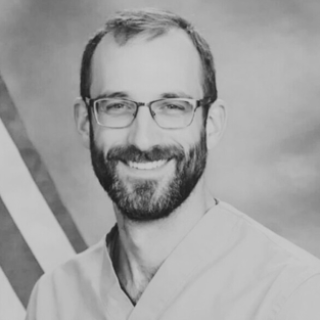Advertisement
Buckeye Environmental Network (BEN), represented by Earthjustice, has filed a lawsuit against the Ohio Department of Natural Resources (ODNR) and its Division of Oil and Gas Resources Management for unlawfully approving two new Class II oil and gas waste injection wells proposed by DeepRock Disposal Solutions, LLC near Marietta.
The suit, filed in the Tenth District Court of Appeals, challenges ODNR’s approval of the Stephan #1 and American Growers #4 wells. The lawsuit argues that ODNR issued these permits using outdated, less protective rules that no longer meet current legal or scientific standards. Both wells would inject millions of gallons of toxic and radioactive oil and gas waste into underground formations less than two miles from Marietta’s public drinking water source.
New Class II well rules were put into place by ODNR in January of 2022 after numerous waste migration incidents, including fracking waste found to have migrated more than five miles from a Washington County injection well. Since the new rules were implemented, the agency has approved three Class II wells and is considering two additional wells under the old, less stringent rules. Four out of five of those wells are owned by DeepRock Disposal Solutions, LLC, and this case is concerning two of those wells.
This lawsuit seeks to protect local residents, uphold the law, and hold both regulators and industry accountable for endangering one of Ohio’s most vital water supplies.
“Community members from Washington County sought Buckeye Environmental Network’s support and expertise in protecting their drinking water and we’re proud to take this step on behalf of our members in the area,” said Buckeye Environmental Network Executive Director Becca Pollard
.Regulators Ignored the Law
The lawsuit contends that ODNR failed to apply updated permitting regulations designed to better protect groundwater, public health, and nearby communities. Instead, the agency relied on outdated standards that no longer reflect modern best practices or the risks associated with Class II waste injection.
“The community in Washington County is unified in this fight. ODNR has stated in their own documents that there has been an “unprecedented migration of brine” in Southeast Ohio, including in Washington County. The ODNR is obligated to follow the Federal Clean Drinking Water Act and to uphold the current state rules that they themselves wrote and the legislature passed into law for a reason. They didn’t do that when permitting these wells, so we’re holding them to account.” -Bev Reed, Injection Waste Program Appalachian Organizer, Buckeye Environmental Network.
Washington County Is Already Overloaded
Washington County already has 17 active Class II injection wells and takes in nearly one fifth of all oil and gas waste disposed of in Ohio each year. A number of those wells have leaked or failed in recent years, spreading contamination miles from their original sites. The addition of two more DeepRock wells would add millions of gallons of hazardous waste to an area that has already seen the environmental toll to an area that has already seen the environmental toll of the industry. The total amount of brine wastewater injected in Washington County from 2015-2024 into Class II wells totaled 2,455,748,022 gallons (2.4 billion). That is equivalent to 3,720 Olympic swimming pools.
“The idea that the ODNR is attempting to regulate two injection wells using the old, lax standards is infuriating. Even worse, these wells are dangerously close to Marietta’s aquifer. That’s my drinking water that is at risk. The injection wells, active and proposed, should be governed by the new, safe regulations, especially because we have so many abandoned, orphaned, and unplugged production wells here. By using the pre-2022 regulations, the ODNR is negligent of the public health and environment of Washington County,” said Dawn Hewitt of Washington County for Safe Drinking Water.
A Stand for Accountability and Justice
The lawsuit asks the court to overturn ODNR’s approval of the DeepRock permits and require the agency to evaluate them under current, legally required standards. If successful, the case could set a statewide precedent for ensuring all future injection wells are reviewed under up-to-date safety and environmental regulations.
Susan Vessels, President of Marietta City Council, said:
“Marietta and Washington County are being forced to accept too much waste too close to our aquifers. Should the proposed injection wells go online, every single year DeepRock would be able to inject one hundred times the volume of waste that resulted in the Love Canal disaster, all within two miles of four aquifers serving thirty-two thousand people. It does not take a PhD in anything to know that this is a brewing disaster for our region. I am grateful to Earthjustice and Buckeye Environmental Network for helping to fight a state agency that is failing to apply regulations created three years ago to protect Ohioans. We will not be compliant victims for the convenience of profiteers.”
Jay Huck, Manager & Operator, Putnam Community Water, added:
“Putnam Community Water, a small water system that serves some 2,500 residents and draws its drinking water from an aquifer along the Muskingum River, has become aware and greatly concerned of the potential dangers that injection wells pose to not only our water system’s aquifer but the water aquifers of several other water systems including the City of Marietta. Should these aquifers become polluted with toxic brine waste there is no possible way of treating the water to make it potable again. The Board of Directors for Putnam Community Water stand with the City of Marietta and other local water systems boards in Washington County opposing these injection wells.”
-------------------------
About Buckeye Environmental Network
Buckeye Environmental Network connects and empowers communities across Ohio to fight pollution, defend clean water, and hold industry and government accountable. The organization works with residents, scientists, and grassroots leaders to build collective power and protect public health through advocacy and education.



